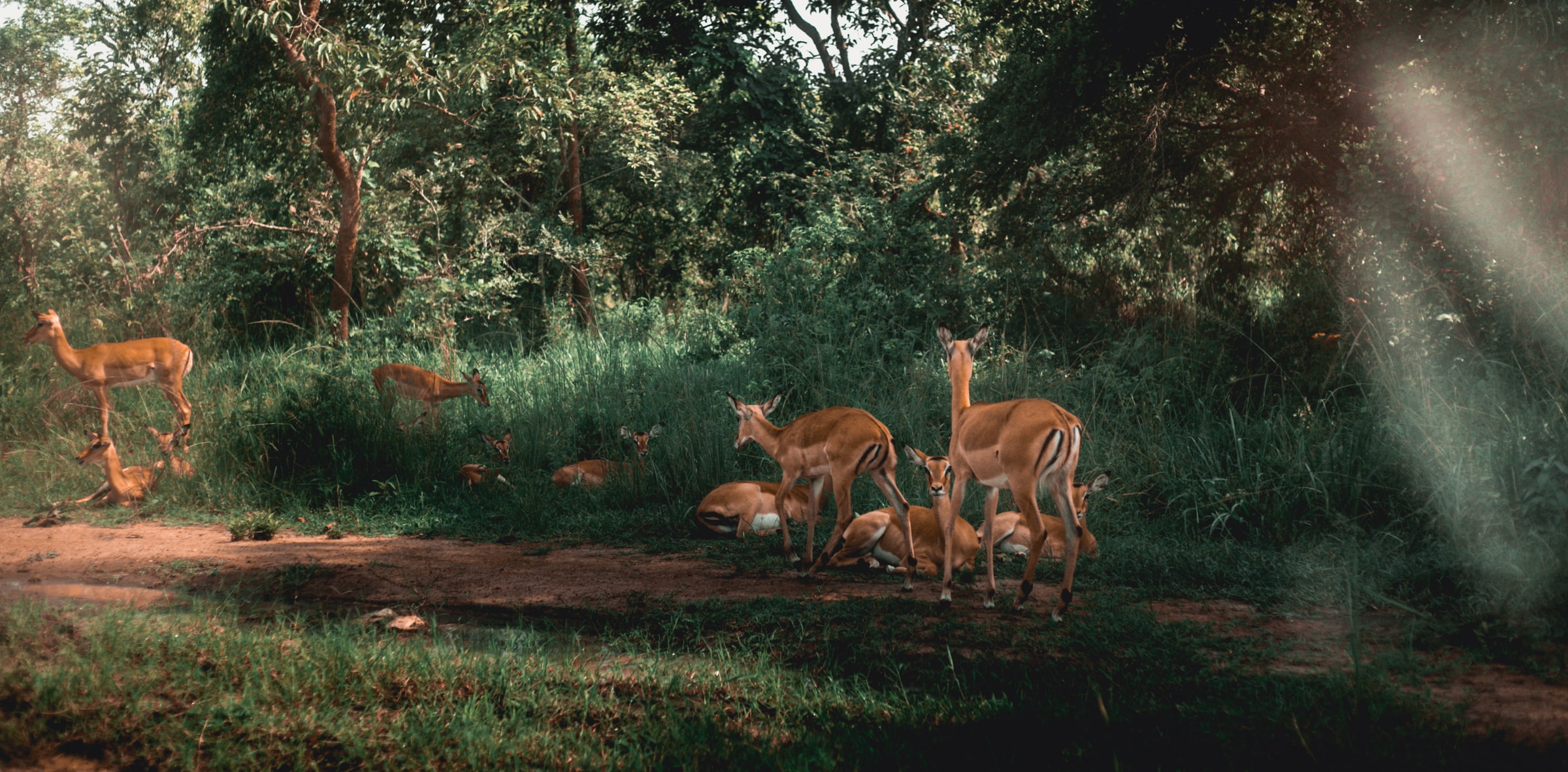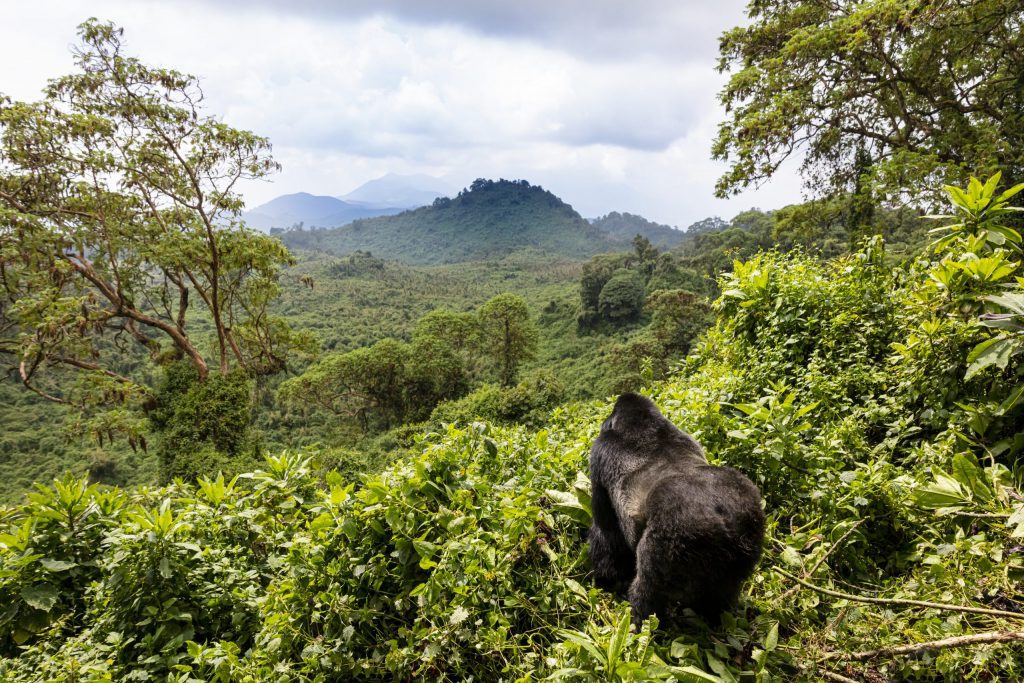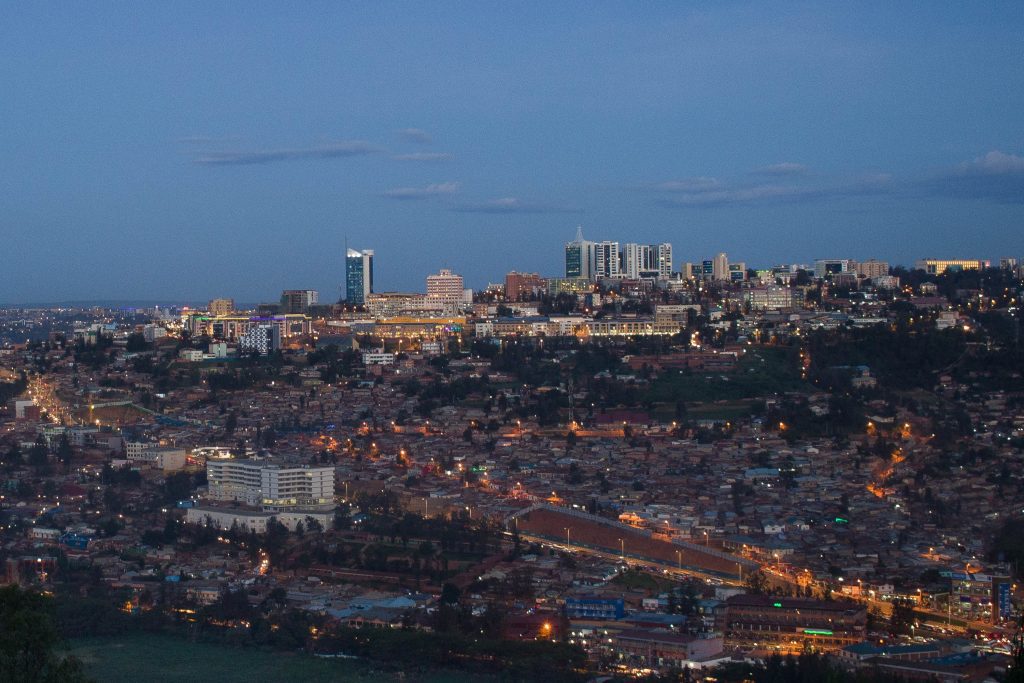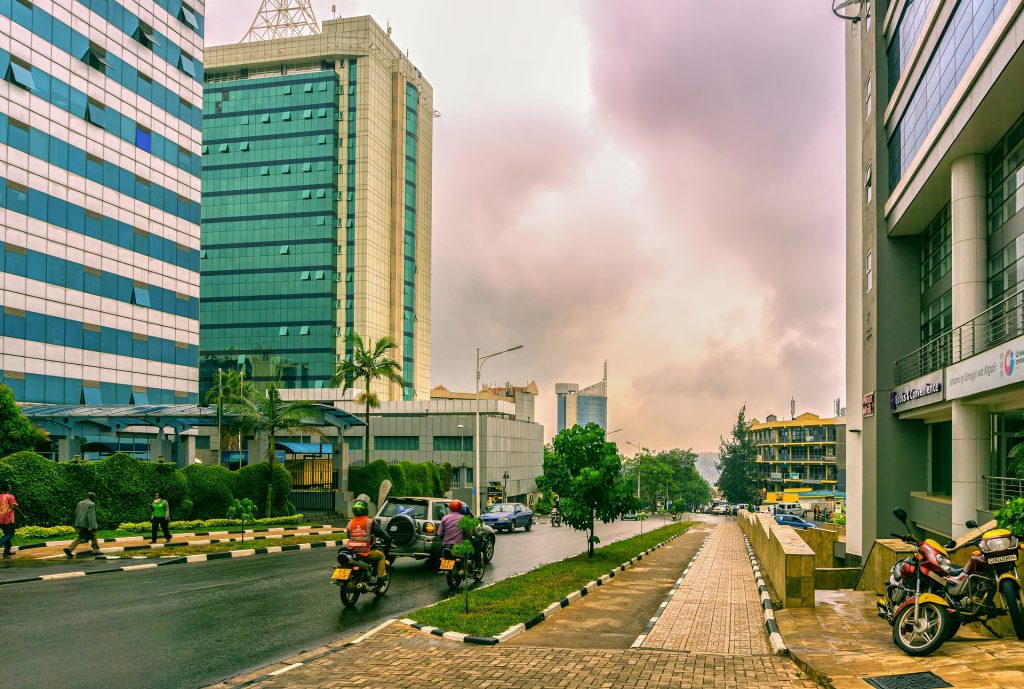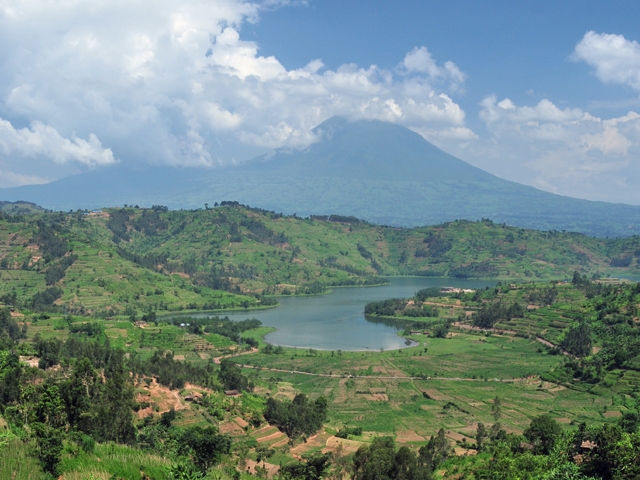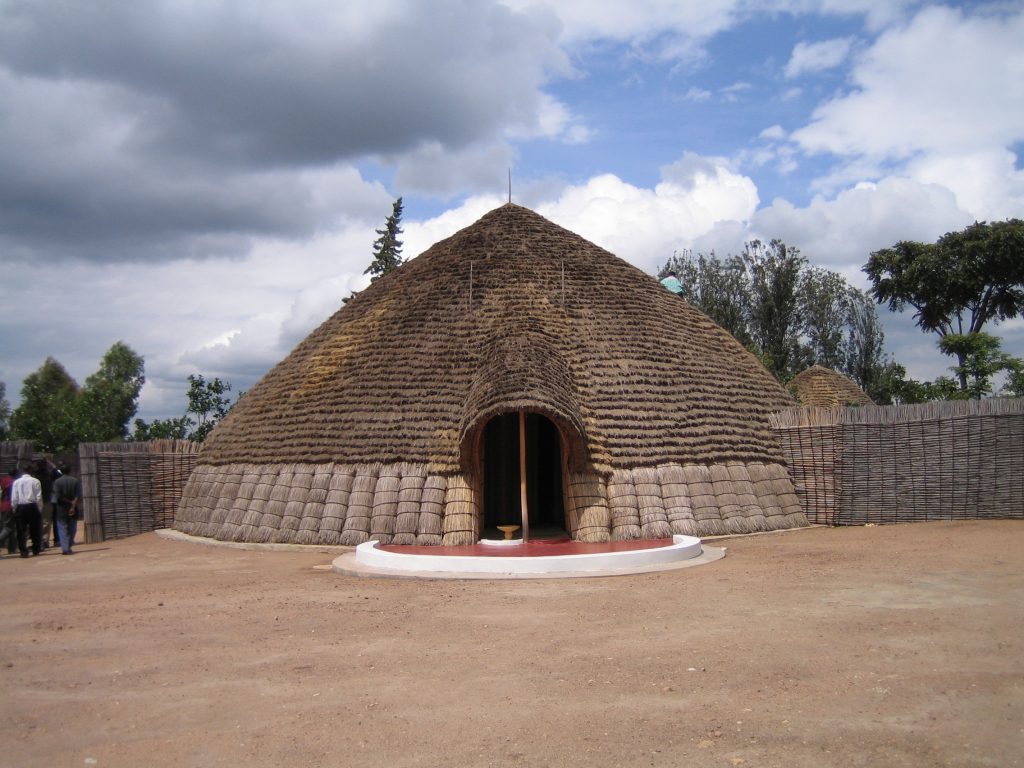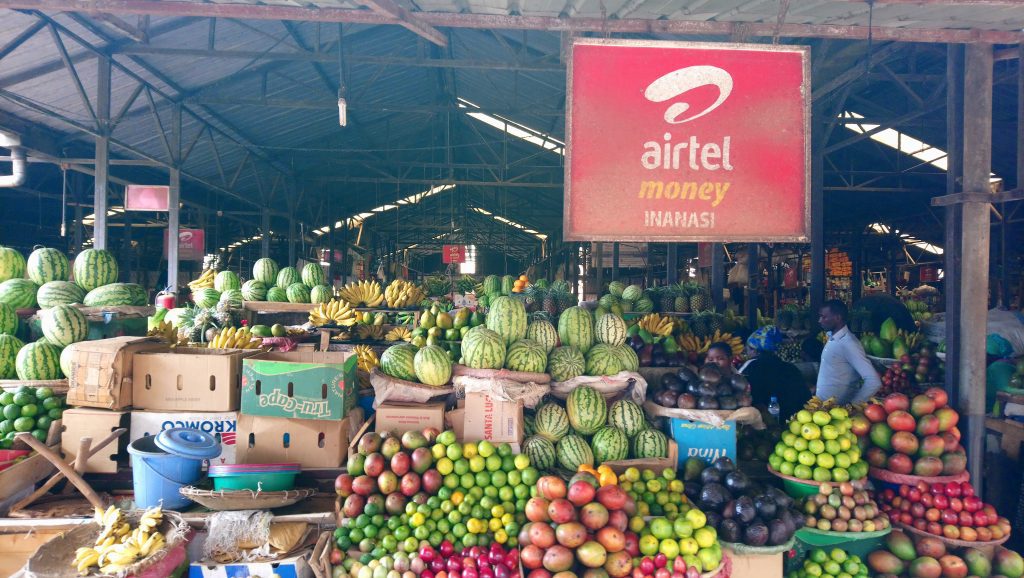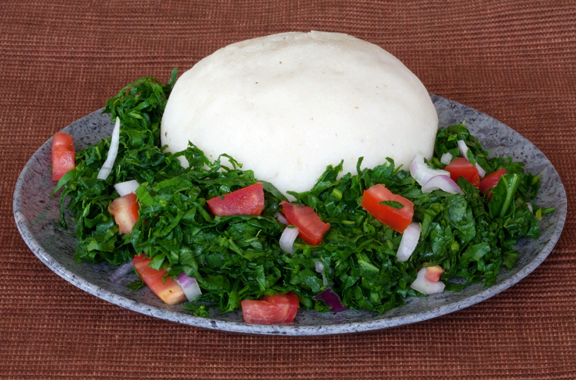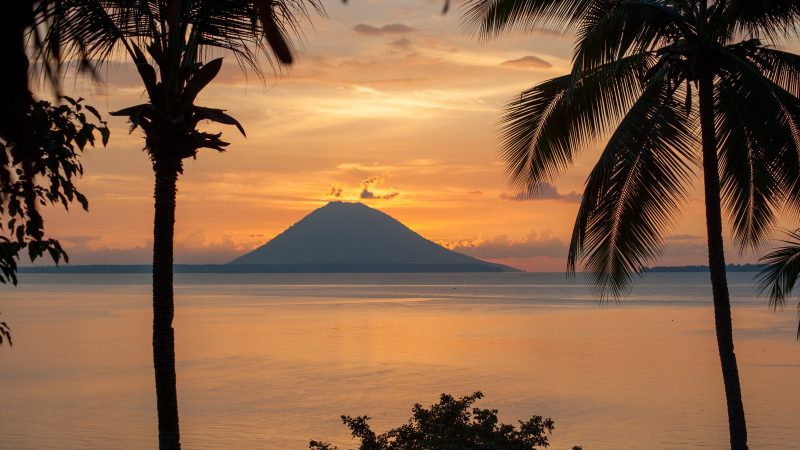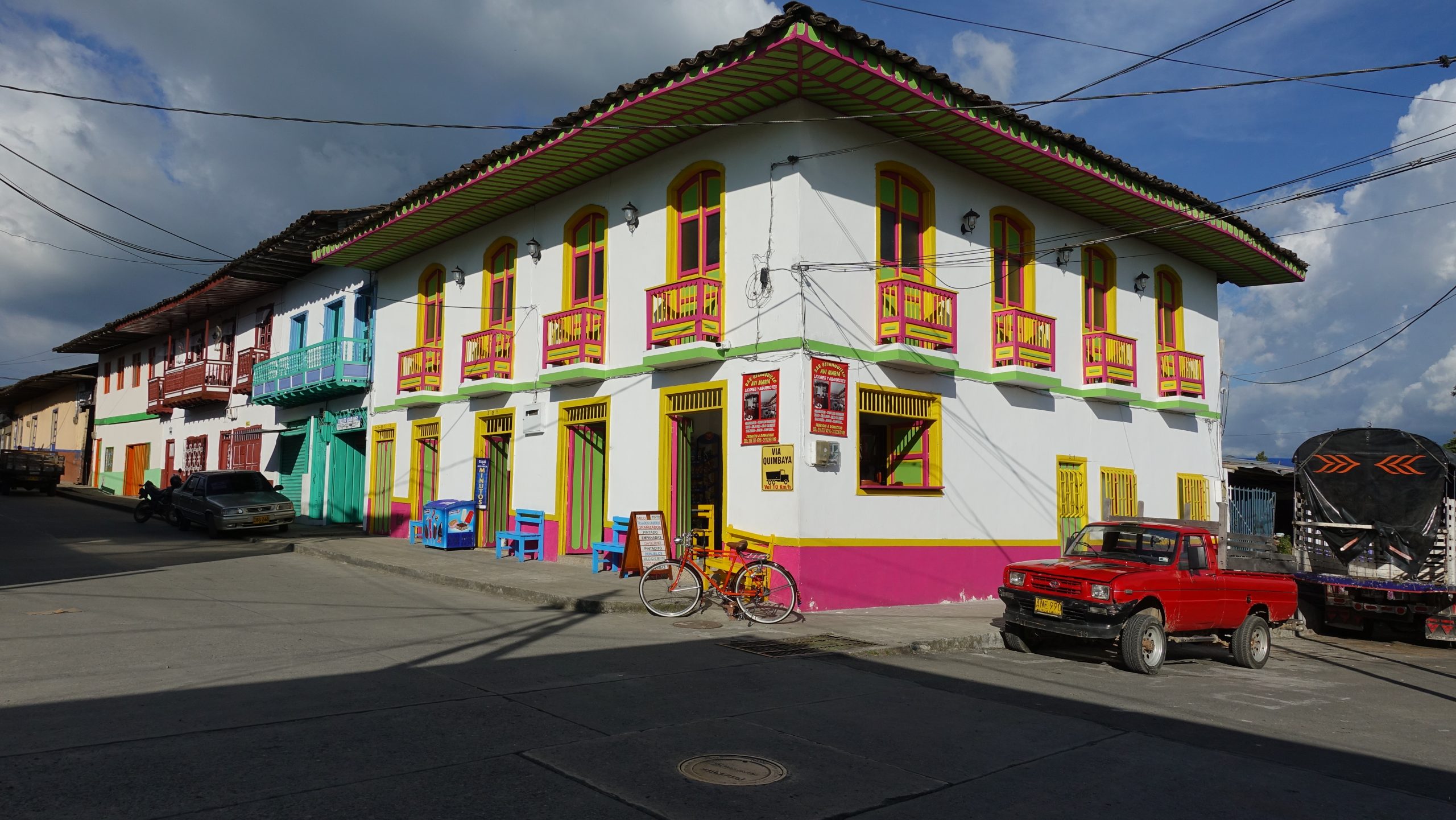Rwanda is a tiny, landlocked country in east central Africa, bordering Kenya, Tanzania, Burundi and the Democratic Republic of the Congo. Sadly, in recent times it was most known for the horrific 1994 genocide, when more than a million people were killed in just a few months’ time. What many people perhaps don’t know, however, is that Rwanda has emerged from that dark time to become a safe, stable and economically thriving country. Calling its recovery miraculous would not be overstating things, and Rwanda regularly makes the list of safest countries in not only Africa, but the world.
On top of that, Rwanda is blessed with some jaw-dropping natural beauty as well as wildlife that can be found almost nowhere else, making it an emerging destination for adventurous travelers. It’s known as “The Land of a Thousand Hills” due to its mostly mountainous topography.
So, let’s learn more about this diminutive but very much up-and coming destination!
Rwanda will appeal to:
- Wildlife watchers, particularly mountain gorillas
- Hikers and cyclists
- Outdoor enthusiasts
- Coffee and tea lovers
This page may contain affiliate links; if you make a purchase through them, I may receive a small commission at no cost to you.
The Basics
Think of Rwandan tourism, and many people will first think of mountain gorilla tracking. That is indeed an activity which is unique to Rwanda, neighboring Uganda and a few other countries, and it has been the main driver behind an eco-tourism boom in the country. If you wish to engage in gorilla tracking while in Rwanda, be aware that it is quite expensive ($1500 per person per day). In order not to be disruptive to the gorilla troops (families) only 96 permits are issued per day, the minimum age is 15 and visits last only one hour. Booking well in advance is an absolute must.
But there’s plenty more to see! The capital of Kigali is in the country’s center, and is a clean, green and modern city with a burgeoning arts and fashion scene, along with good restaurants and museums. The Kigali Genocide Memorial is the country’s foremost memorial/museum dedicated to educating visitors about what occurred and honoring the memories of those who were killed.
When it comes to the outdoors, the country’s four national parks offer a wide variety of experiences. The Volcanoes National Park is famous for gorilla tracking, but visitors can also track golden monkeys, and many other primates can also be spotted. The park also has some incredible scenery and fantastic guided hiking opportunities.
Rwanda may not seem to be an obvious destination for those looking for the classic safari experience, but since lions and rhinos were successfully reintroduced to Akagera National Park in 2015 it is possible to see the Big Five (elephant, rhino, lion, leopard and African buffalo). The park is located in the country’s east, where the hills and mountains give way to flatter savannah landscapes.
In the country’s southwest is the Nyungwe Forest National Park, one of Africa’s oldest rainforests and an area of extreme biodiversity. Here the main attraction is chimpanzee and colobus monkey tracking, but the park’s well maintained trails and beautiful landscapes also make it a great place to experience the beauty of a lush rainforest.
In the west, and bordering the DRC, you’ll find Lake Kivu. It’s a large and very deep lake dotted with islands and surrounded by mountains. The area is beautiful to visit and just relax for a few days, or engage in some outdoor activities if you prefer to keep moving.
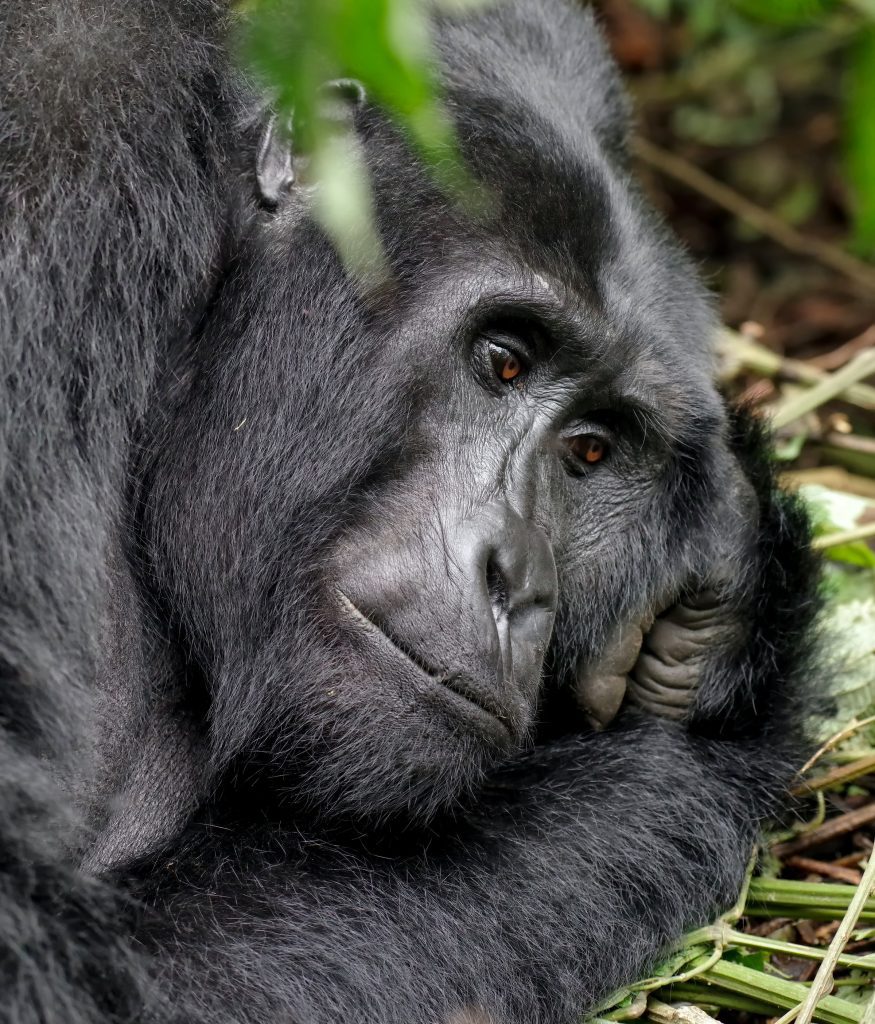
Sustainability
Rwanda is a leader in environmental sustainability, and one need look no further than how they treat single-use plastic for evidence of this fact. They banned – yes, completely banned – plastic bags in 2008. Not only can they not be used or sold anywhere within the country, but visitors should anticipate that their luggage may be searched upon entry, and any plastic bags confiscated. This may seem extreme, but it has worked – overall plastic use has declined, plastic waste piles are rare and Rwanda is widely considered to be the cleanest country in Africa.
Many of Rwanda’s environmental issues, such as deforestation, soil exhaustion and soil erosion, stem from its high level of population density. This also means that the region is vulnerable to food insecurity – as visitors we should keep this in mind and take care to not waste food.
In the realm of sustainable tourism, Rwanda is also a standout within Africa. One particularly successful project is called the Red Rocks Initiative for Sustainable Development. It was founded by Greg Bakunzi, who also owns the very successful tour company Amahoro Tours. Spending money on services offered by locally-owned companies such as this one, is one of the best ways we as visitors can help the local communities.
Active Travel
Obviously, tracking mountain gorillas is a physically challenging activity, especially if you’re tracking one of the troops located at higher elevation. But beyond that there is still plenty of opportunity to get one’s heart pumping during a visit to Rwanda. First off, tracking other primates such as golden monkeys (which is also available in Volcanoes National Park) is another, more budget-friendly way to both enjoy viewing primates in their own habitat and take in the high mountain scenery.
In addition, activities such as hiking, mountain biking and kayaking (particularly on Lake Kivu) are gaining in popularity, and leading to greater tourism development in areas of the country which were previously overlooked. Trekking in the national parks is almost without exception available only with a guide, which is generally a good idea, anyway, since guides know both the terrain and how/where to spot interesting wildlife.
Overall, while the gorilla watching side of Rwandan tourism is both well developed and widely known, it’s a real up-and-coming destination for outdoor sports, safari and related activities. This can be a great advantage for adventurous travelers, due primarily to the lack of both crowds and inflated prices.
Culinary Travel
For such a small country, Rwanda’s cuisine is surprisingly varied. The local diet is largely vegetarian, using plantains, maize (corn), cassava, potatoes, beans and chapati (a type of flatbread originally from Kenya) as staples. That said, meats and fish (generally tilapia from Lake Kivu) are widely available in restaurants.
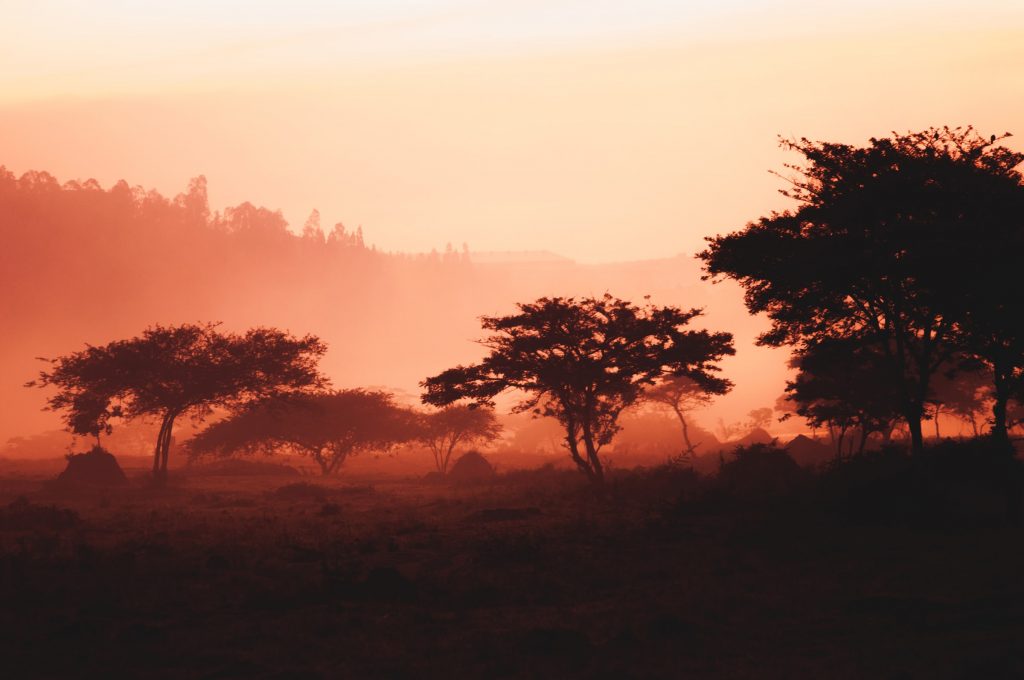
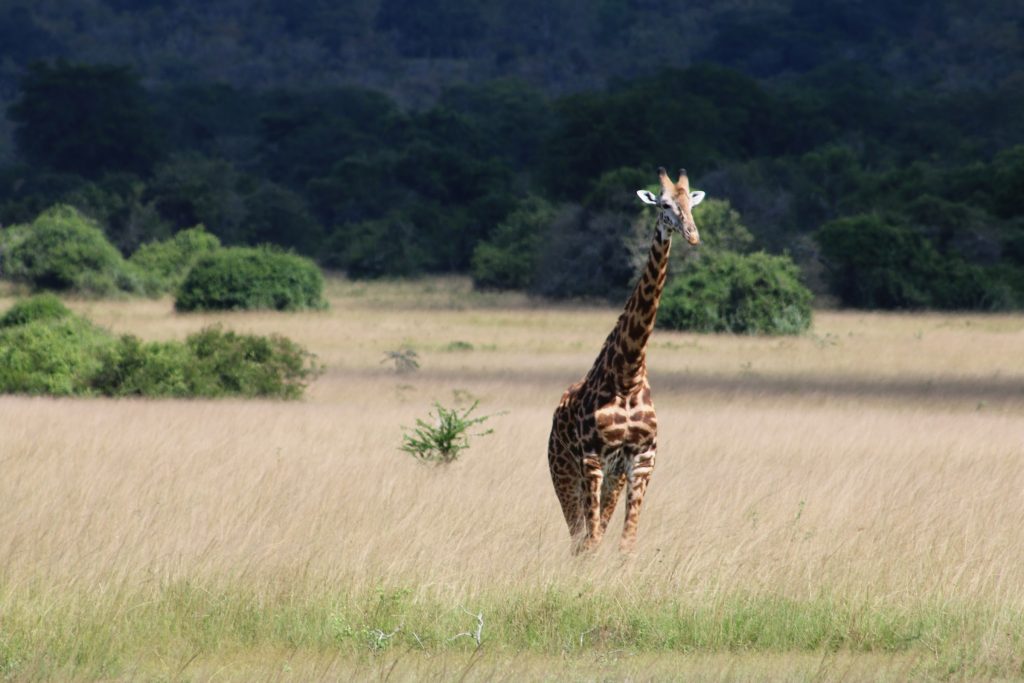
Many meals will be served with ugali, made from maize, as a starch. Like many starches, ugali has little taste itself, but takes on the flavors of whatever it’s eaten with. For those seeking extra flavor and heat, akabanga is a spicy chili oil used to add that extra kick to any dish. Start with just a few drops, however, because it is quite spicy!
One of the most popular ways in which meat is served is brochettes, a specialty of French origin where the meat is grilled on a skewer, in Rwanda exclusively over a charcoal grill. It’s available with a variety of meats as well as fish, sometimes with vegetables included as well, and generally served with a side of salad or fries – which are also very popular in Rwanda!
Tea has been cultivated in Rwanda since 1952, and has earned a strong reputation for quality. Rwanda also produces a significant amount of coffee, of the arabica variety and also very high quality. That said, very little of it is consumed locally, so if you want to try it you’ll have to seek it out – coffee shops in Kigali or Gisenyi are your best bet.
For those interested in tasting a 100% local tipple, give urwagwa, or banana beer, a try. It’s made using pressed ripe bananas and millet, meaning it’s gluten free! I’ve read that it tastes sweet and smells strongly of fermented, well, bananas.
My Tips & Picks
Hotel Tip: The Urban by CityBlue Kigali is a 4-star boutique hotel located in an attractive, treelined neighborhood adjacent to the city center. It has great views over the city from its rooftop terrace, and offers comfortable rooms and a restaurant at an affordable price. An added bonus: it’s part of a small chain of African-owned and run hotels, so the money you spend there stays in Africa.
Mid-range Lodge Tip: The Tiloreza Volcanoes Ecolodge, a short drive from the entrance to Volcanoes National Park, is just upscale enough to feel special, but not so pricey as some of the ultra-luxury resorts. It fits right into that sweet spot, and has all the amenities for a comfortable stay. Rooms and suites are spacious, modern and decorated in warm tones, and outdoor spaces include beautifully tended gardens and a swimming pool.
Restaurant Tip: Migano Café has two locations, one near the shoreline of Lake Kivu in Gisenyi and another in Ruhengeri near Volcanoes National Park. Both locations are highly rated for their good food and comfortable, relaxed atmosphere. The location in Ruhengeri is also a hotel.
Planning Your Visit
Getting there: For those entering the country by airplane, Kigali International Airport has flights to many African and Middle Eastern cities, as well as London-Heathrow, Brussels and Amsterdam in Europe. Overland routes from neighboring countries in Africa are also generally good, and buses are readily available on many routes.
Keep in mind that visitors from most countries need a visa to enter Rwanda, though in some cases it can be purchased on arrival. As always, be sure to check your specific requirements well before departure!
When to go: In general, the dry seasons from June to September and mid-December to mid-March are the best times to visit. Not only is the weather pleasant, but game viewing and gorilla tracking are generally better at this time as well. Oh, and with less rain there are fewer mosquitoes, too – a big plus! One exception is tracking chimpanzees; this is generally better in the rainy season.
I hope you’ve enjoyed learning more about Rwanda and all it has to offer. Happy Travels!
